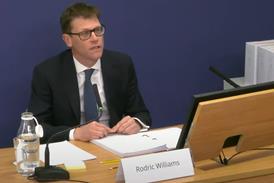The past two weeks have delivered two interesting outcomes at the Business and Property Courts. Although centring on entirely different issues they had two noteable themes in common: mega-value oligarchs and privacy orders.
In one case, a default judgment originally handed down in June was finally made public. It revealed that Kazakhstani businessman Ilyas Khrapunov, accused of participating in a $6bn (£4.6bn) alleged fraud had been fined more than $424m (£229m). The judge described Khrapunov's reasons for avoiding questioning on UK soil as 'without merit'.
In the other dispute – a £400m row surrounding ownership of the Norebo Group fishing company – press (including the Gazette) were barred from hearing an application that one of the parties (Vitaly Orlov) had violated terms of a freezing order.
During the privacy application Orlov’s lawyer submitted that confidential information related to the businessman’s personal wealth was likely to be referred to – an argument Mr Justice Males accepted.
It was briefly suggested during opening arguments that there must be a way that the case could continue in public with confidential information restricted to lawyers and judges, but this was abandoned without much of a fight.
Of course courts must sometimes sit in private - but we must beware of eroding the principle of open justice. We have already heard that cases relating to the UK’s much trumpeted unexplained wealth orders are being held away from the public gaze.
Bob Neill MP, chair of the House of Commons’s Justice Committee, also weighed in on the issue of open justice this week submitting that ‘secrecy’, except in exceptional circumstances, is wrong.
Reacting to the news that a cage fighter from London convicted of helping to organise a £53 million armed robbery was ‘secretly let off’ repaying what he stole, Neill said: ‘On the face of it, this case flies against the presumption of justice being done in public. It may well be something that the attorney general needs to look at and the courts need to look at.’
The lure of English courts, particularly for foreign litigants, is clear – a report published earlier this year showed that the next most represented country after the UK for number of litigants during 2017/18 was Kazakhstan (31), followed by the US and Russia, (both 20).
But as litigants flock to the courts to resolve their disputes they should not assume they can do so in private.

















![David Lester (senior partner at Blythe Liggins), Darryl Barnes, Jagdeep Sandher (head of dispute resolution at Blythe Liggins)[4]](https://d1d8vslyhr7rdg.cloudfront.net/Pictures/274x183/4/2/8/116428_davidlesterseniorpartneratblytheligginsdarrylbarnesjagdeepsandherheadofdisputeresolutionatblytheliggins4_981603_crop.jpg)






1 Reader's comment